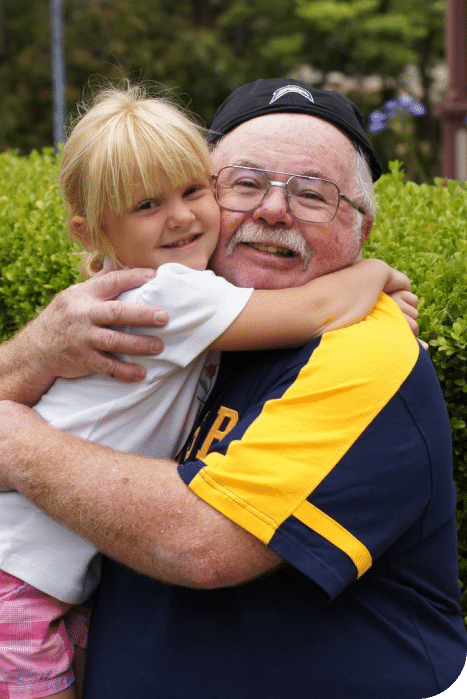How To Tell People You Have Cancer
If you have been diagnosed with mesothelioma, you may not be sure how to tell people you have cancer. It can help to make a plan for telling others about your diagnosis. Make a list of people you want to talk to and be honest about your emotions, especially with close family and friends. You’ll also need to notify your employer and children about the condition. For legal aid in receiving compensation for your mesothelioma from an employer or third party, contact The Lanier Law Firm.
Home » National Mesothelioma Law Firm » Mesothelioma Cancer » How To Tell People You Have Mesothelioma Cancer
Mesothelioma is an aggressive cancer with a poor prognosis or survival rate. According to Penn Medicine, the average mesothelioma survival rate is only four to 18 months after diagnosis, and the current five-year survival rate is just 10 percent.
If you’ve been diagnosed with mesothelioma, you are probably thinking about how to tell people you have cancer. But whom to tell, and when to tell them?
There is no correct way to tell loved ones about mesothelioma and your end-of-life decisions. You can do what feels right for you. If you’re unsure, you may want to consider working with a social worker or mental health therapist to help you decide how to tell others that you have mesothelioma. Either way, there are ways to prepare yourself to tell loved ones about your diagnosis.
Make a Plan
First, plan how you will tell others about your mesothelioma diagnosis. Make a list of people you want to tell, and note who will most likely be supportive.
Then, think about how you’d like to tell them. If you want to avoid having conversations over and over, you can email certain people. Alternatively, you can post updates about your health on social media or have a family member, such as a spouse or child, share your information.
Once you’ve created a list, consider what you’d like to tell people and how to respond to their reactions. Ask yourself the following questions:
- How much do I want to tell this person? Some people are more compassionate than others. As a result, you may not want to tell certain people everything about your mesothelioma diagnosis. If someone asks you for more information, you can tell them that you’re not ready to talk about it.
- How can they help me? If you want people’s emotional and logistical help, you can tell them. Conversely, if you don’t need their help, you can tell them you already have the support you need. Also, think about how certain people can help you in unique ways — some people are better at listening when you’re sad, while others are better at running errands like driving you to the hospital or cooking meals.
- Do I want them to share my news with others? Thanks to social media, news can spread like wildfire. If you don’t want everyone to know about your diagnosis, tell people that you don’t want them to share the information with others.
Pinpoint and Share Your Feelings
Next, figure out how you feel. Pinpointing your emotions will empower you to process your emotions and determine the kind of support you need. According to a 2021 study, the most common emotional needs for mesothelioma victims were increased awareness and knowledge about psychosocial support, specific resources, and active coping mechanisms.
Once you’re ready to tell others about your feelings and diagnosis, be honest about your feelings, especially with close family and friends. It’s normal to feel frustrated, scared, and depressed. However, suppressing your negative emotions and acting cheerful when you don’t feel that way will damage your emotional well-being in the long run. It can also put distance between you and your loved ones.
If you don’t feel comfortable talking about your emotions with your friends and family, consider joining a mesothelioma support group. These groups may improve your quality of life and emotional well-being by connecting you with people who are going through the same experiences. They can also help you cope with treatment, provide an increased sense of hope, and find solutions for practical problems.

Think About Ways to Respond When People Are Unhelpful
People often respond in unpredictable ways. Even close friends and family may say things that seem offensive, callous, or unhelpful. For instance, they may:
- Offer unwanted advice or opinions about your end-of-life decisions
- Offer treatment or advice recommendations that you didn’t ask for
- Share irrelevant stories about other people’s cancer journeys
If this happens, put your emotions first. Be direct — tell them that you don’t want their advice and that you don’t want to talk about certain opinions or topics.
Tell Your Employer About Your Mesothelioma Diagnosis
Before telling your employer about your diagnosis, talk to your healthcare provider to see if treatment will impact your work schedule. Your treatment may only be available during work hours. You may also need several weeks of rest to recover from certain treatments, such as surgery.
Once you have a clear idea of how your treatment will impact your work schedule, you can tell your employer about your diagnosis. Keep the following in mind before you schedule a meeting with your employer:
- The Americans with Disabilities Act protects your job as you undergo cancer treatment. In most cases, your employer must comply with your treatment schedule and grant you time off for appointments.
- If side effects from treatments will impact your work, request accommodations from your manager and the human resources department.
- If you have supportive coworkers, consider sharing your diagnosis with them. This can boost morale and give you the support you need in the workplace.
- Keep records of emails, conversations, accommodation requests, and other interactions with your employer about your cancer. If you decide to file a personal injury lawsuit against an asbestos manufacturer for your mesothelioma diagnosis, your lawyer can use these records to maximize compensation.
Telling Children About Mesothelioma
Keeping a mesothelioma diagnosis from a child can cause more fear than if you told them the truth. Children know when something is wrong. Although knowing the truth is likely to evoke strong emotions in children, it is less distressing than uncertainty and hushed voices. Open communication allows your child to ask questions, process emotions openly, and prepare for the progression of mesothelioma.
Open the Door of Communication
When explaining a mesothelioma diagnosis to a child, avoid making it sound less severe than it is. Doing so can blindside the child when the disease progresses or results in death. The detail your child needs will vary based on age, but children at most ages will need to know the following:
- That you or your loved one has mesothelioma
- What mesothelioma is and what causes it
- That the diagnosis is not the child’s fault
- Side effects of mesothelioma treatment
- The progression of mesothelioma
- How much time the doctors say your loved one has left
- That whatever they are feeling is okay and normal
- That you and the adult with mesothelioma still love them
- That it is still okay to do fun things, laugh, and be happy
Talking to children about cancer is more than a one-time conversation. Over time, the prognosis can change, and the side effects of treatment or disease progression become more evident. Model open communication and encourage your child to ask questions and talk openly about the diagnosis.

Help Your Child Cope
Your child will experience a grieving process that may manifest differently from adults. For example, your child may pretend nothing is wrong at first. Denial is the first stage of grief. Children are not always able to verbally express emotions. Your child may act out or regress. Assure the child that their feelings are normal without forcing conversations. Be open about your own emotions so your child can see that it is okay to express emotions openly.
Adolescents and young adults are more aware of the consequences of cancer and tend to have more difficulty coping than younger children. They may act out, withdraw, or turn to social media and other online sources for information. Consider enlisting the services of a professional grief counselor if your child is having difficulty coping.
Younger children are more likely to experience separation anxiety and blame themselves for the diagnosis. For as long as possible, allow the child to spend quality time with the loved one who has mesothelioma. Find a support network of caring adults who can be there for the child when you or your loved one cannot.
Be Upfront About Death
The life expectancy of mesothelioma is generally short. The subject of death can be frightening, but openly discussing it can remove some of the fear and prepare your child ahead of time. It can make children more comfortable spending time with the dying person. Older children may wish to make the most of the time left or even make amends for real or perceived past wrongs. Adults who were unaware their parents were dying of cancer almost universally feel a greater loss when their parents die from the disease.
Resources for Families with Children Coping with a Cancer Diagnosis in a Parent
- The American Cancer Society’s Guide to Talking to Children at Different Ages
- The Cancer Council of Australia’s Guide to Talking to Kids About Cancer
- KidsCan! Support Group for Children Whose Parents Have Cancer
- Kesem – Free camp and other support services for children whose parents have cancer
Get Legal Help for Your Mesothelioma Diagnosis Today
A mesothelioma diagnosis can be traumatizing and exhausting for you and your family, especially since mesothelioma has a poor prognosis.
The Lanier Law Firm has decades of experience litigating mesothelioma and asbestos lawsuits in the U.S. If you developed this type of cancer due to asbestos exposure, our mesothelioma law firm can hold the asbestos manufacturer(s) responsible for your condition. Depending on the facts of your case, you may be entitled to substantial monetary compensation. Contact us today to schedule a free consultation.
By submitting this form, you agree to our terms & conditions. Please read the full disclaimer



